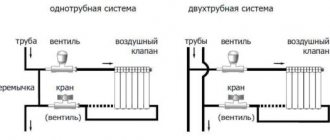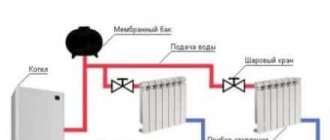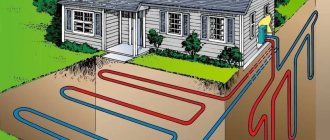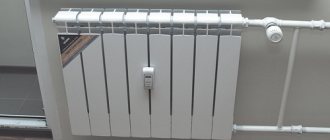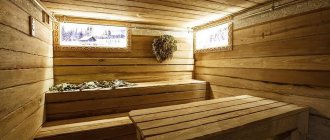Annual recalculation for heat. Let's understand the nuances
For whom is recalculation relevant?
Residents of not all regions receive recalculation for heat. In our country there are two options for paying for heating:
- In fact
, that is, according to the readings of the general house heat meter, and only during the heating season. - Equal amounts every month
, even in the summer, when there is no heating. This calculation system is called “1/12”. It allows you to distribute utility bills evenly throughout the year and avoid their sharp increase during the heating season.
Recalculation is applied where the “1/12” settlement system is in effect.
How exactly to pay is decided by regional authorities. For example, in Kemerovo, Novokuznetsk, Novosibirsk, Nazarovo the “1/12” payment system operates, but in Kansk and Biysk they pay for heat after the fact, which means they do not receive any recalculations. 2020 will be a transitional year for the heat payment system in Krasnoyarsk. Until August inclusive, Krasnoyarsk residents pay according to the old scheme - in equal installments of 1/12, and therefore at the beginning of 2022 an adjustment will be made for the first eight months of 2022. She will be the last. From August 2022, consumers in Krasnoyarsk will begin to pay for heat upon delivery. All the details are here.
Which houses receive recalculation?
Let us immediately clarify that SGK does not make annual recalculation for heating to all houses, but only to those where there are common house meters. They are installed in high-rise buildings and count all the heat that the house consumes during the year. The management company (MC) records the heat meter readings every month and transmits them to the SGC. Houses without meters always pay according to the standards approved by the authorities.
How to recalculate
When the year ends, SGK specialists compare the volume of heat recorded by the meter with what residents paid for 12 months and convert it into rubles (at the established tariff). The resulting difference is divided among all owners in proportion to the area of the apartments.
In the first quarter, residents receive a payment recalculated for the previous year.
It can be in two versions:
- Plus. You need to pay extra,
since the actual consumption at home turned out to be more than the volume for which they paid for the whole year. - In minus. There was an overpayment
, since during the year the residents paid more than what the house actually consumed. In this case, the amount of overpayment is deducted from the bills, residents will be able to pay less for heat for some time.
But why can the same house go either negative or positive in different years? The point is the difference in the volumes of actual consumption for the calculated year and the previous one. Every year it changes, sometimes up, sometimes down.
What is average heat consumption
The average heat consumption of the current year is the fact of heat consumption in the past year, which is measured by a common house meter, divided into 12 equal parts
Real examples
For example, in 2022, a residential building consumed 444 Gcal in a year, which was recorded by the heat meter.
It was divided by 12 and received 37 Gcal. This figure became the average monthly consumption for a home for 2018, meaning residents paid for 37 Gcal every month of the year. But in 2022, the house actually consumed more heat - 498 Gcal. Therefore, in January 2022, residents received receipts with additional charges. At the same time, average consumption for 2022 also increased and became equal to 498/12 or 41.5 Gcal.
If a house actually consumes less heat in 2022, then in January 2022 people will receive savings on their receipts, and their home will receive a reduction in average consumption for 2022. If they consume more heat, they will again receive a recalculation with an additional payment, and the average consumption at home for 2022 will increase again.
In houses where communal heat meters are not installed, consumers do not receive recalculation bills; they simply pay 1/12. In Novokuznetsk, for example, within the Kuznetskaya CHPP circuit, 41% of houses without heat meters. In Kemerovo - less than 1%.
What affects heat consumption
Firstly,
the weather.
The colder the winter, the more heat the house consumes. The length of the heating season also affects the volume of consumption. Secondly,
the maintenance of the house. Heat consumption largely depends on the thermal insulation of the building. And here you can ask the management company: what has been done to avoid heat loss? How tightly do the doors in the entrance close, are there any cracks in the window frames, are the attics insulated, and so on?
Third,
heat consumption is increased by a decrepit general heating system: faulty valves on pipes, in the basement, lack of thermal insulation.
Each house has its own heating unit. It regulates the temperature and pressure of hot water that came from the thermal power plant. And if the equipment in it works properly, all parameters are precisely adjusted, then the heat in the house will not be wasted, and the residents will not freeze. The management company must maintain the heating unit, and apartment owners must demand that all procedures be carried out on time.
Management companies must monitor the serviceability of heat meters and promptly transmit their readings to the heat sales divisions of SGC
When recalculation “disrupts” the management company
There is another important point that affects the annual recalculation for heat. Problems may arise due to the fact that the management company untimely transmits readings from common house metering devices to a resource supply organization, for example SGK. The reason for this is most often a malfunction of the meters. The management company must again monitor their technical condition.
At the end of the year, recalculation will still be carried out. But for those months for which readings were not provided, average data or normative figures will be used. Both do not reflect real consumption.
How many degrees should there be in an apartment, office and entrance?
The temperature in apartments should be no less than 18–20 degrees Celsius, in offices - no lower than 20, and in school classrooms - no less than 18. In the premises of kindergarten groups, thermometers should not fall below 22 degrees, in bedrooms - below 19 degrees . There are also rules for entrances. During the heating season it should not be below 16 degrees.
Measurements will be more accurate if you follow a number of simple rules. First of all, you should close all windows and doors, and keep the thermometer a meter from the floor in the center of the room. You should also make sure that you are at least half a meter from the battery and the outer wall.
How quickly should the accident be resolved?
As can be seen from the list above, if the air temperature is 12 °C and above, the problem must be solved within 16 hours; if the temperature is from 12 to 10 °C, then in 8 hours; and 4 hours in advance if the thermometer drops below 10 °C.
If you encounter interruptions in heating, then you must recalculate the payment for the corresponding period. For each hour of deviation of the air temperature in a residential premises over the permissible duration in total during the billing period in which the specified deviation occurred, the amount of payment for utility services for such billing period is reduced by 0.15% of the fee determined for such billing period.
How to reduce heating bills?
In some new buildings in the capital, heating radiators are already equipped with individual meters. By adjusting the temperature, residents can reduce their heating bills.
This technique can be used everywhere. But the whole house needs to switch to heating using individual metering devices at the same time. The decision must be made at a general meeting of owners. If you installed meters without the consent of your neighbors, then you will not be able to transfer the readings to the management company. Even with the radiator turned off, the heat in the apartment will remain thanks to the heating risers. But the whole house will have to pay for it.
It is beneficial for owners to install individual meters only with a modern horizontal heating system, when the risers are located in the entrance, and two pipes are supplied to the apartments - direct and return. With vertical wiring, several heating risers are installed in the apartment at once. In this case, meters will have to be installed on each pipe, which will reduce all savings to nothing.
Automatic heat: how you can save on heating Heat cycle in the city: how Moscow apartments are heated
Where can I complain about heating in apartments?
If the heating is poor, the radiators in the apartment heat poorly, and the entrance is so cool that steam comes out of your mouth, you should contact the dispatch service of your area or the management company. Specialists must check and repair communications on the same day.
If the problem could not be solved or your call went unanswered, then you can report the poor performance of the heating systems to the Moscow Department of Housing and Communal Services. Operators of the Department's unified dispatch service accept requests for accidents, complaints and comments regarding the operation of heating systems around the clock by phone: +. In addition, Muscovites can use the department’s electronic reception desk.
Another option is to call MOEK. Messages about problems with heating in the apartment, accidents, steam release and other problems in the heating and water supply system are accepted around the clock by phone: +.
You can express dissatisfaction with the work of the management company through the electronic reception of the Moscow Housing Inspectorate or personally to the head of the territorial unit. In a written statement, you must briefly describe the essence of the issue and attach copies of appeals to the management company and other authorities.
You can also file a complaint using the Moscow State Services mobile application or on the Our City in the Apartment Buildings section. In the latter case, the answer will come within eight days.
Mistake No. 5: lack of logic in formulas when calculating ODN
The fifth error is not mathematical: there is no logic in the calculation algorithm. After all, each formula today consists of the sum of the volume of thermal energy spent on individual needs and the volume of one. Here are examples of calculating ODN in formulas 2(3), 2(4) of Appendix 2 to RF PP No. 354:
In the denominator of the formula, the area of unheated rooms is subtracted from the total area of premises in the house. Logically, the entire area of the house should be there: both the premises in the property and the common areas. Including unheated ones. Otherwise, an unfair distribution results.
How to adjust heating fees for 2022
3341714
What should a specialist do?
A specialist inspects the heating system and determines what may be the cause of the malfunction. He must record in writing that there is no heat at the time of his arrival, and be sure to indicate specific readings (temperature). Measurements are made using a ball thermometer.
He also draws up an act in two copies, one copy remains with the owner of the apartment. The act is needed so that you can apply for a recalculation of heating fees or defend your interests in court if it comes to it.
To draw up an act that has legal force, a number of conditions must be met:
- Do not artificially influence the room temperature in any way. That is, do not turn on the heaters and do not open the windows. The average temperature must be measured under neutral conditions.
- It is necessary to convene a commission that will confirm the measurements.
- It is important to notify the management company or service provider in advance that you plan to take measurements and draw up a report.


